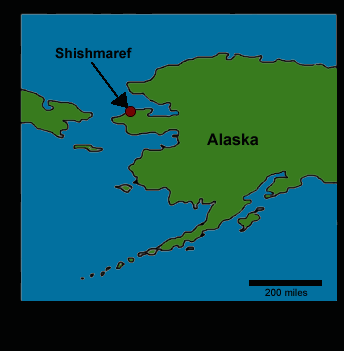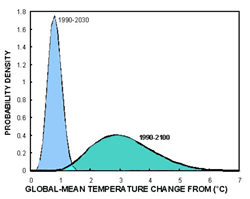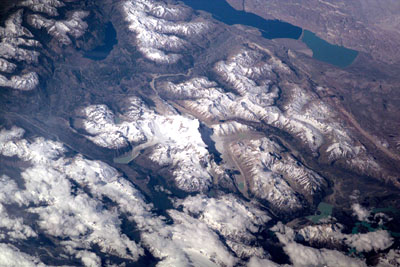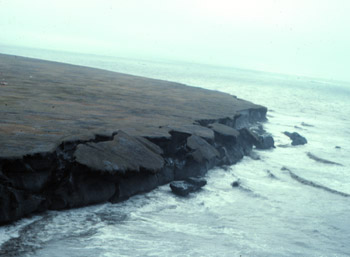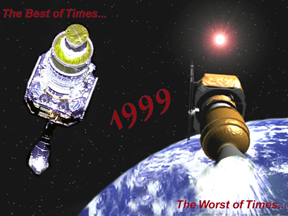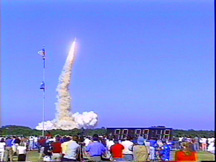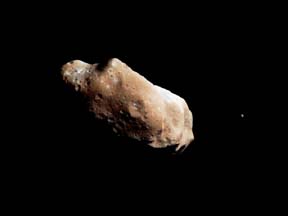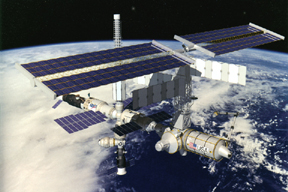Click on image for full size
Windows to the Universe original image
Global Warming Endangers an Alaskan Eskimo Village
News story originally written on August 28, 2002
Global warming is raising temperatures of arctic regions much faster than other areas on Earth. This rapid warming is causing the village of Shishmaref, Alaska to wear away slowly into the sea.
Shishmaref, located on a small barrier island off the coast of Alaska, is the home of 600 Eskimo people. They have noticed over many years that winters are warmer than they used to be with less sea ice surrounding their island. In fact, the average winter temperature in Alaska is now 4 degrees Celsius higher than it was 40 years ago.
The arctic warms much faster than other places because the warming climate melts snow and ice that cover the surface, allowing the newly exposed Earth surface to absorb more solar energy. As the surface is able to absorb more energy, the climate warms some more and is able to melt even more snow and ice according to Gunter Weller, professor at the University of Alaska.
As the arctic warms, the layer of frozen ground that covers the surface melts, becoming soft and easily worn away. This means that Shishmaref's small island was once solid but is now basically a pile of shifting sand and dirt.
Without sea ice surrounding the island and frozen ground the island is exposed to severe storms, which are wearing away the coast so rapidly that people of the village are considering moving the entire town off the island.


